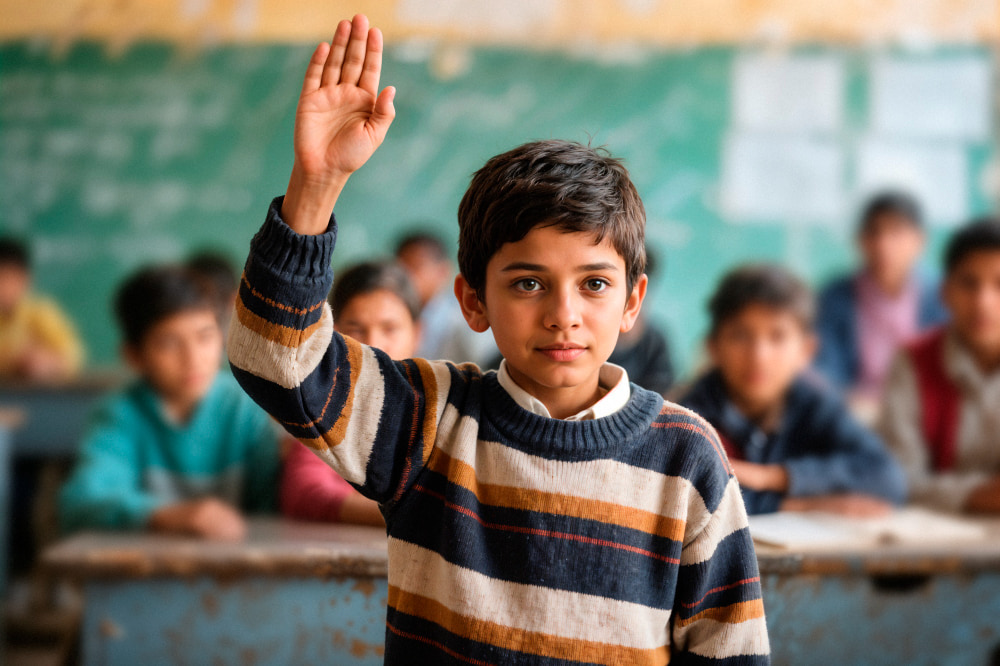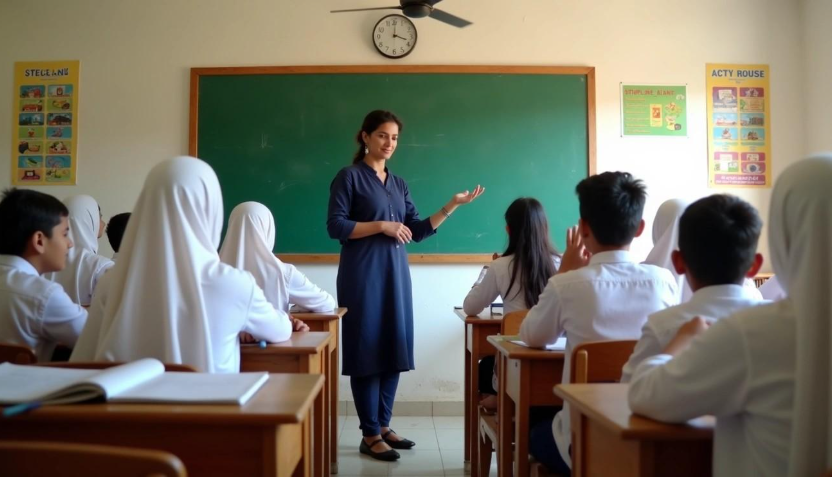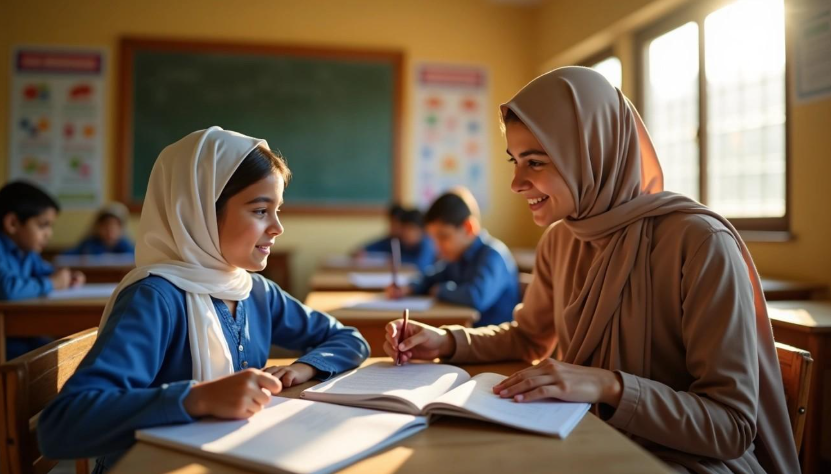In Pakistan, countless children face life without family support, leaving them vulnerable to hunger, lack of shelter, and little chance at education. Orphaned children often struggle for basic necessities, but there is hope. Through orphan support in Pakistan, your donation can transform survival into opportunity like providing food, safe housing, schooling, and care. This article explores how your generosity through orphan relief in Pakistan changes lives, turning hardship into brighter futures. The Daily Struggles of Orphaned Children in Pakistan Life for orphaned children in Pakistan is marked by hunger, unsafe shelter, and limited access to clean water or medical care. Malnutrition and preventable diseases are common, while the emotional toll of loss leaves many struggling to trust or feel secure. Education, often a pathway out of poverty, remains out of reach for most. With few resources and schools available, many children are forced into labor instead of classrooms, keeping them trapped in hardship. These daily struggles show why consistent support is vital to give orphans the chance at stability and a brighter future. Your Donation: A Lifeline for Survival Every donation is more than financial aid. Basically, it’s a lifeline that helps children survive and rebuild their futures. Food and Clean Water Support provides nourishing meals that fight malnutrition and give children the strength to learn and grow. Donations also secure safe drinking water, protecting them from dangerous illnesses that often spread where clean sources are scarce. Safe Shelter Your generosity offers orphaned children stable housing through orphanage support services or foster care. A secure place to live not only shields them from the streets but also creates a nurturing environment where they can feel protected and start to heal. By covering these most basic needs, your donation lays the foundation for a healthier, safer, and more hopeful future for children who would otherwise be left vulnerable. Education: The Key to Breaking the Cycle Education is one of the most effective ways to break the cycle of poverty. When you sponsor an orphan in Pakistan, your donation gives children access to learning opportunities that prepare them for a brighter future. Learning Essentials Support covers school supplies like books, uniforms, and stationery, ensuring children can focus on their studies instead of worrying about affordability. Donations also fund qualified teachers and caregivers who provide both academic guidance and emotional support. Skills for the Future Beyond classrooms, contributions support vocational training in trades such as tailoring, carpentry, or computer skills. These programs equip older children with practical tools to earn a living and become independent. Holistic Growth Workshops in arts, sports, and creative activities build confidence, teamwork, and critical thinking. This well-rounded approach prepares children not only to succeed academically but also to grow into resilient, capable adults. Education supported by your generosity becomes the stepping stone from survival to self-reliance. Beyond Basic Needs: Fostering Emotional and Social Well-being Meeting physical needs is vital, but orphaned children also require emotional and social care. Supporting an orphan charity ensures they not only survive but also heal and grow. Healing and Support Many children face trauma and instability. Donations fund access to counseling and therapy, helping them process their experiences and develop healthy coping mechanisms. Strong role models and caring staff provide the consistency every child deserves, fostering trust and resilience. Building a Sense of Community Well-run programs create environments where children build friendships and experience a sense of family. Sharing, playing, and supporting one another helps them feel less isolated and more connected to their community. Real-World Impact: Stories of Transformation The impact of your donation isn’t just numbers; it’s seen in changed lives. These stories show the real power of generosity. Aisha’s Journey Imagine Aisha, once a shy girl struggling with chronic hunger. Her eyes were always downcast. With steady support from donors, she found a safe home and regular, nourishing meals. Soon, Aisha started attending school. She loved learning and quickly became a top student. Today, Aisha is studying to become a teacher, eager to give back to her community. Her journey from hardship to a promising future shows what consistent care can do. Community Upliftment Supporting orphaned children also uplifts entire communities. When children receive an education and job skills, they grow into contributing members of society. This reduces poverty and creates a more educated, stable population. Every child helped is a step toward a stronger, brighter Pakistan. Their success inspires others and strengthens the local fabric. Expert Insights “Donations offer more than just material aid,” says Dr. Fatima Khan, a child psychologist working with orphans in Pakistan. “They provide the emotional security and consistent care essential for a child to overcome trauma and thrive. This investment builds not just individual futures, but a more compassionate society.” How You Can Make a Difference Today You have the power to change a life. Taking action is simpler than you might think, and every bit of help counts. Choosing a Reputable Charity It’s important to make sure your generosity goes to good hands. Do your due diligence by researching and selecting trustworthy organizations. Look for charities specifically working with orphans in Pakistan. Their mission should align with your values. Always emphasize transparency and accountability. A reputable charity will be open about their finances and show how your donations are used. Check for annual reports and impact statements to confirm their effectiveness. Look for organizations that clearly track their progress. Types of Donations Monetary contributions offer incredible flexibility and effectiveness. Financial donations allow organizations to allocate funds where they are most needed, responding to urgent and changing requirements. This direct support helps cover everything from food to medical care. In-kind donations are another way to help. Some organizations accept specific items, such as educational materials, new clothing, or hygiene products. Always check with the charity first to see what they need and can accept. This ensures your items are truly useful. Consider setting up regular giving. Even small, recurring donations can have a sustained impact over time. This provides charities with
How Education Support Programs in Pakistan Are Shaping Brighter Futures
Pakistan has over 260,000 educational institutions serving 41 million students, yet 39% of children remain out of school like about 26 million nationwide. Literacy stands at just 62%, with urban rates (74%) far higher than rural (54%). While free education is a constitutional right, implementation often falls short. NGOs and education support programs have stepped in to fill these gaps, improving enrollment, reducing dropout rates, and raising learning outcomes. This article explores how these programs are transforming lives and shaping brighter futures for children across Pakistan. Understanding the Education Crisis in Pakistan Pakistan’s education system faces a deep crisis that extends beyond enrollment. The number of out-of-school children has climbed to over 26 million, worsened by COVID-19 and the 2022 floods. Learning poverty is severe, with most children unable to read age-appropriate text by age 10. Disparities remain stark: literacy reaches 96% in Islamabad but falls below 25% in some districts, while rural female literacy is under 10%. Limited investment of just 2.5% of GDP leaves schools underfunded, with inadequate infrastructure and long distances to access education. How Education Support Programs Are Making a Difference Education support programs in Pakistan are showing strong results through targeted interventions. For example, the PPRS program in rural Sindh boosted enrollment by 32 percentage points and improved exam scores in math and language. Organizations like HHRD support children with mentorship, healthcare, food, and school materials, ensuring nothing blocks their education. The Citizens Foundation (TCF) operates 1,800+ schools for 280,000 underprivileged students, while READ Foundation runs 330 schools serving 69,000 children in rural areas. USAID has also trained over 46,000 teachers and administrators since 2013. Public-private partnerships, already successful in Punjab, offer sustainable solutions if expanded thoughtfully to other regions and education levels. Examples of Impactful Education Support Programs Several NGOs are driving change across Pakistan. The Citizens Foundation (TCF) runs 2,033 schools for 301,000 students, supported by an all-female faculty of 14,700 teachers. Developments in Literacy (DIL) operates 214 schools serving 89,344 students, achieving a 99% primary school completion rate and only 4% dropouts compared to the national 41%. UNICEF’s Accelerated Learning Program condenses six years of curriculum into 30 months, reaching 1,000+ students in Balochistan, while Zindagi Trust has reformed government schools in Karachi through better infrastructure and governance. Science Melas, hosted by Khwarizmi Science Society, attract over 100,000 attendees annually, offering hands-on science experiences. These organizations fill vital gaps where government resources fall short, making education more accessible and effective. Conclusion Pakistan’s education system faces deep challenges, but support programs have become vital in offering solutions. These initiatives address not only enrollment but also learning quality, gender disparities, and regional inequalities. Organizations like The Citizens Foundation and Developments in Literacy highlight what dedicated investment can achieve, with lower dropout rates and higher school completion than national averages. Public-private partnerships and innovative models like UNICEF’s Accelerated Learning Program further prove that scalable, impactful solutions exist. Though the constitution promises free education, reality often falls short. Education support programs bridge these gaps, ensuring children receive learning materials, trained teachers, and supportive environments. At Pakistan Children Relief (PCR), we are committed to this mission supporting vulnerable children with education, care, and opportunities to thrive. Every school built and every child educated represents a step toward a more literate and empowered Pakistan. These programs aren’t just shaping individual futures, they are gradually transforming the nation’s possibilities. FAQs Q1. What impact do education support programs have in Pakistan? They boost enrollment, improve learning, and reduce disparities, helping drive economic growth and fight poverty. Q2. How are NGOs helping education in Pakistan? NGOs like TCF and DIL run schools, offer scholarships, and train teachers, achieving lower dropout rates and better results than national averages. Q3. What is the Accelerated Education Program (AEP)? AEP, supported by UNICEF, condenses six years of learning into 30 months, helping out-of-school children catch up quickly. Q4. Do public-private partnerships improve education in Pakistan? Yes, especially in Punjab, where these partnerships improve school access, teaching quality, and enrollment. Q5. How do programs reduce the urban-rural education gap? By building schools in underserved areas, training rural teachers, and offering scholarships for disadvantaged children.
Guide for Donors: How to Sponsor a Child in Pakistan
Pakistan faces immense challenges, with millions living in poverty and recent floods worsening the crisis. Among the most affected are children, many of whom lack access to education, healthcare, and proper nutrition. Child sponsorship offers more than short-term relief. It provides a path out of poverty. By supporting charities working directly with communities, donors help children receive food, schooling, medical care, and a safe environment. This guide explains how child sponsorship works in Pakistan, the different ways to donate, and the lasting impact your support can create for vulnerable children. What does it mean to sponsor a child in Pakistan? Child sponsorship represents a lifeline for millions of vulnerable children across Pakistan. Unlike conventional donations, sponsoring a child establishes a personal connection between you and a specific child in need. Understanding the concept of child sponsorship Child sponsorship is a regular financial commitment that provides vulnerable children with food, education, healthcare, and a safe environment. In Pakistan, most programs either match sponsors with a specific child or channel funds into community-based initiatives. Sponsors also receive periodic updates, creating a personal connection and transparency in the process. Why Child Sponsorship in Pakistan Is More Than Financial Aid Child sponsorship goes far beyond covering daily expenses. Your monthly support provides education, healthcare, nutritious meals, safe housing, and clothing, but the real value lies in the long-term development it creates. Consistent sponsorship helps break the cycle of poverty by giving children stability, skills, and confidence to grow into responsible, educated adults. Over time, this support raises literacy levels, reduces poverty rates, and strengthens entire communities. Many sponsored children later help their siblings and community members, creating ripple effects that last for generations. How child sponsorship works with Pakistani charities Pakistani charities have streamlined the sponsorship process to ensure donors can make a lasting difference in children’s lives. Understanding how these programs work helps potential sponsors make informed decisions about their contributions. How the sponsorship process works Sponsoring a child in Pakistan is simple: choose a child through the charity’s platform, set up monthly contributions, and begin receiving regular updates on their progress. This streamlined process ensures transparency while building a meaningful connection between donors and children. What your donation typically covers Monthly sponsorship usually provides essentials like schooling, healthcare, meals, clothing, and safe housing. Some charities also extend support to families, such as offering small loans to help mothers become self-reliant. How sponsors receive updates and stay connected Sponsors usually receive regular updates about the child’s education, health, and overall progress. Many charities also share photos or letters a few times a year, allowing donors to see the direct impact of their support. This communication creates transparency and a personal connection without requiring extra effort from the sponsor. Duration and commitment involved in sponsorship Sponsorship usually continues until the child turns 18 or completes their education. While not legally binding, consistent support ensures stability for the child. Ways to donate and support child sponsorship There are multiple avenues to help vulnerable children in Pakistan beyond traditional sponsorship programs. Supporting these initiatives allows you to make a meaningful difference regardless of your resources. One-time vs. monthly donations Monthly sponsorship (around USD 39–99) ensures steady support for education, healthcare, and nutrition. One-time gifts are also welcomed, with flexible options for donors who prefer occasional contributions. Zakat and Sadaqah contributions Child sponsorship in Pakistan is Zakat-eligible and also counts as Sadaqah Jariyah, offering lasting impact and spiritual reward while helping break poverty cycles. Corporate and institutional sponsorships Businesses can participate through corporate sponsorship programs that support multiple children simultaneously. These partnerships benefit both vulnerable children and companies seeking meaningful social responsibility initiatives. Organizations like SOS Children’s Villages offer complete sponsorship of family homes housing approximately ten children. In-kind donations and services Besides financial aid, many charities also accept items like food, clothing, or school supplies to meet children’s immediate needs. Volunteering your time and skills You can also contribute by volunteering your time or skills, whether through tutoring, fundraising, or helping with community projects. The impact of sponsoring a child in Pakistan Witnessing the transformation in a sponsored child’s life represents one of humanity’s most profound experiences. In Pakistan, thousands of children have experienced life-changing opportunities through sponsorship programs. Real-life success stories from sponsored children Stories from Pakistani charities highlight the impact: Hamzah, once orphaned, completed a master’s degree and now supports others; Adnan Rasool advanced to a career in healthcare; and Afzal Mohammad financed a new family home in the SOS village where he grew up. How sponsorship breaks the cycle of poverty Sponsorship empowers children to rise above poverty. For example, Iffat Rashid pursued a BS in Biotechnology after sponsorship support, showing how education enables lasting change and higher achievement rates than national averages. Emotional rewards for donors Alongside these success stories, sponsors often describe the joy of receiving updates and witnessing their sponsored child’s growth, a bond that feels deeply rewarding. How sponsored children contribute back to society Many formerly sponsored children not only support their families but also go on to inspire change in their communities, showing how sponsorship creates ripple effects far beyond individual success. Conclusion Sponsoring a child in Pakistan is one of the most impactful ways to fight poverty and create lasting change. Beyond providing food, education, and healthcare, it builds confidence, stability, and hope for the future. At Pakistan Children Relief, we believe every child deserves the chance to grow in a safe and nurturing environment. Whether through monthly sponsorship, Zakat contributions, or one-time support, your generosity can transform lives and break cycles of poverty. Together, we can give vulnerable children in Pakistan brighter futures and stronger communities. FAQs Q1. How does child sponsorship in Pakistan work? Ans: It involves a regular monthly donation that supports a child’s education, healthcare, nutrition, and living needs. Sponsors usually receive updates and sometimes letters or photos from the child. Q2. What are the ways I can sponsor a child? Ans: You can give through monthly sponsorships, one-time donations, Zakat or




